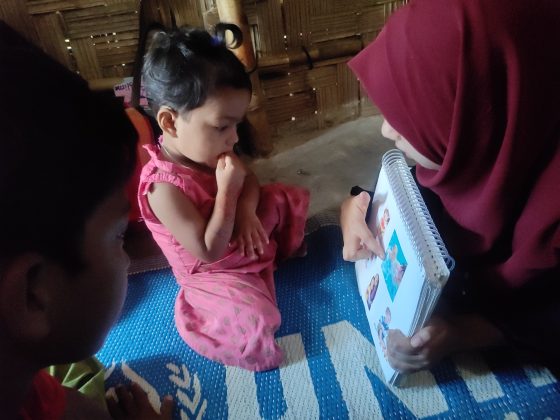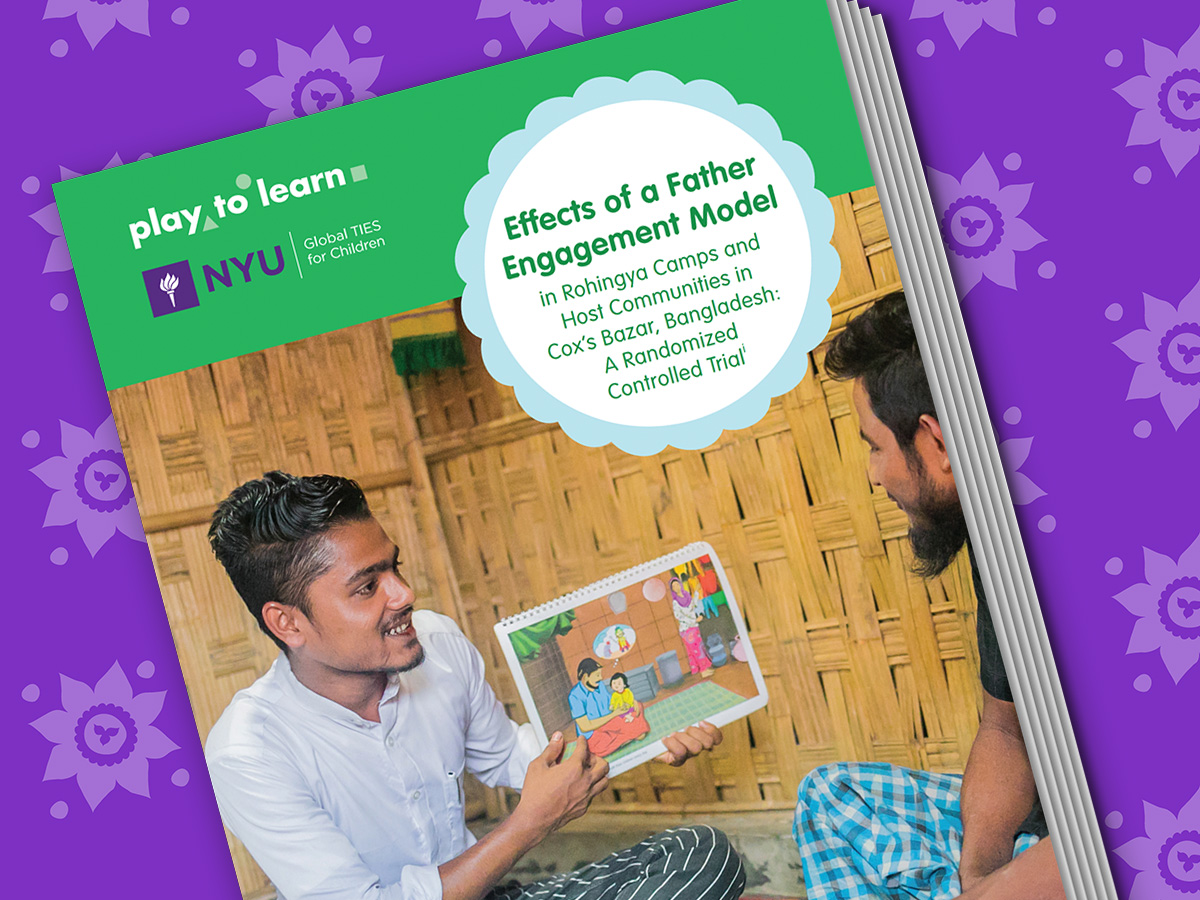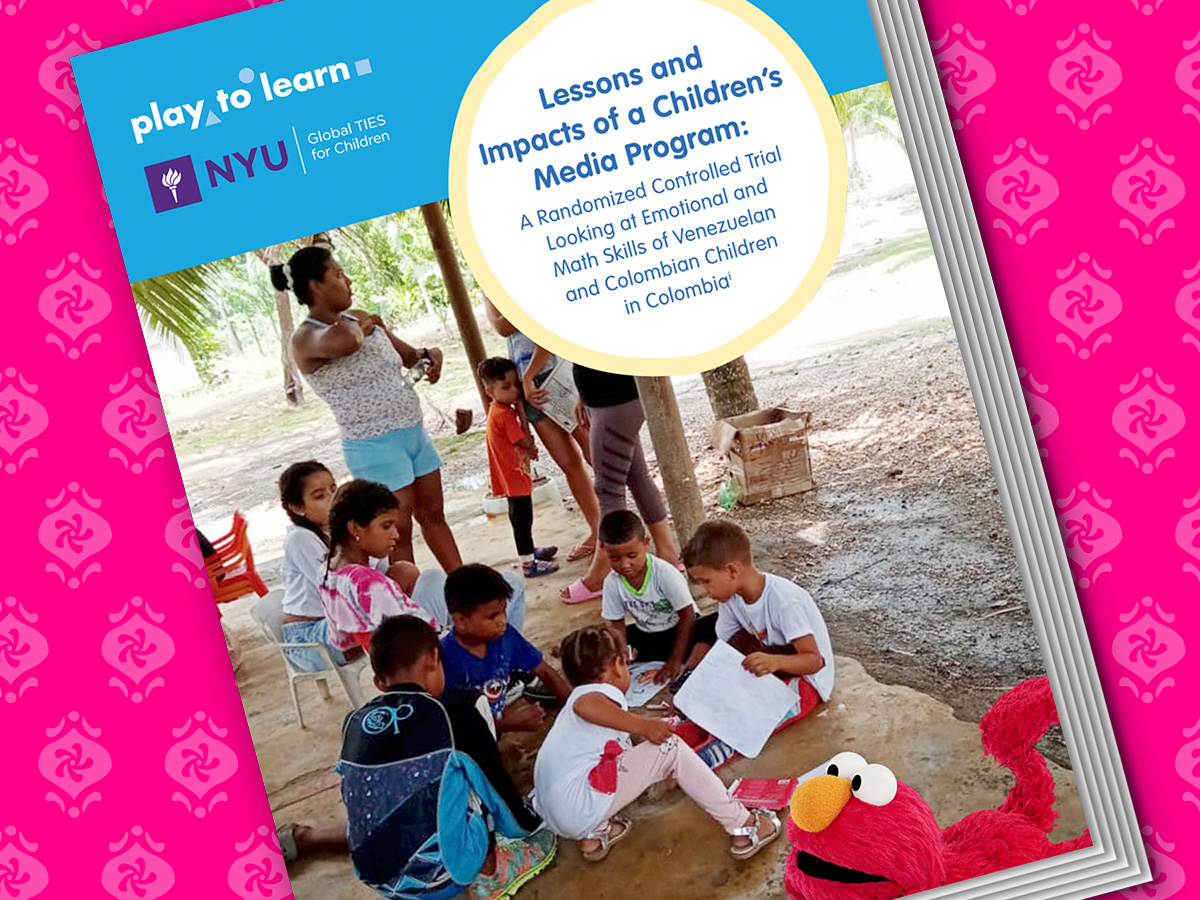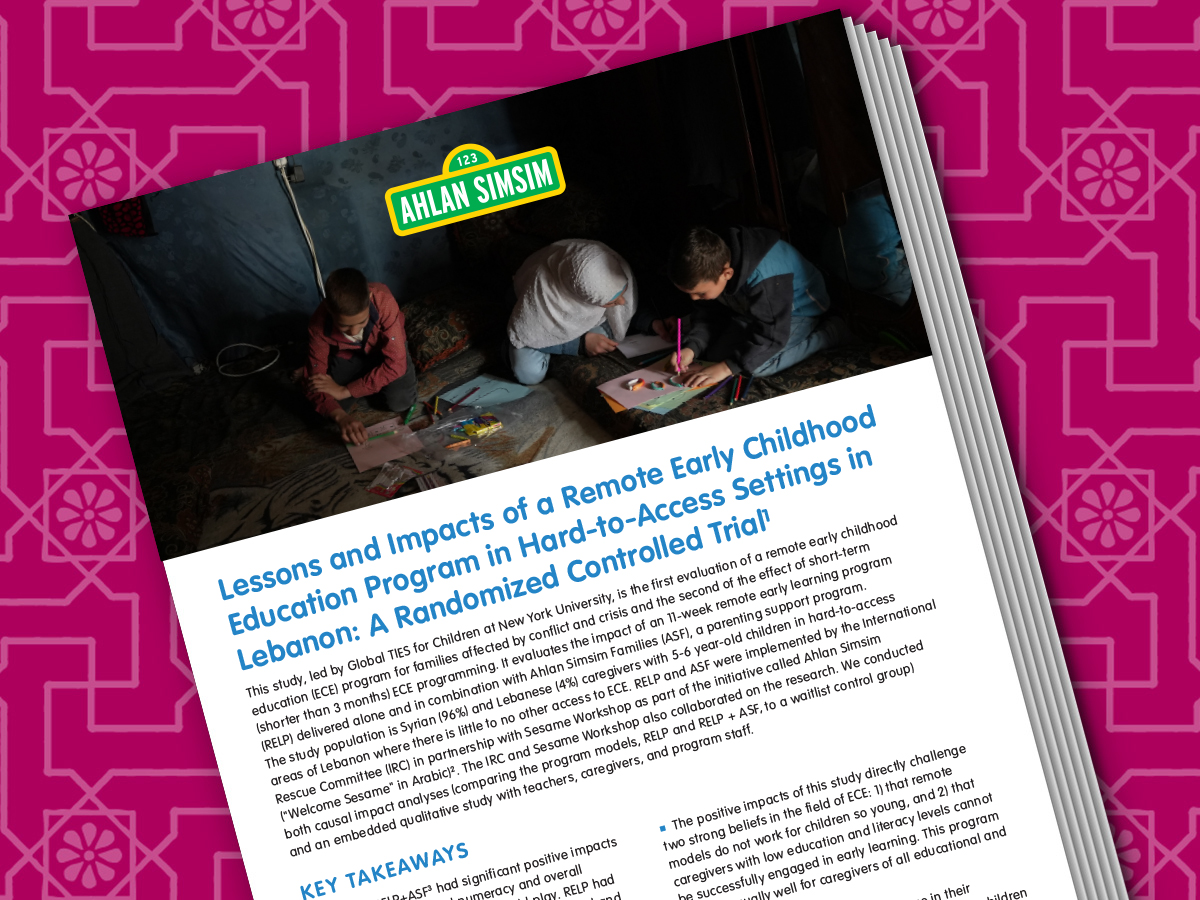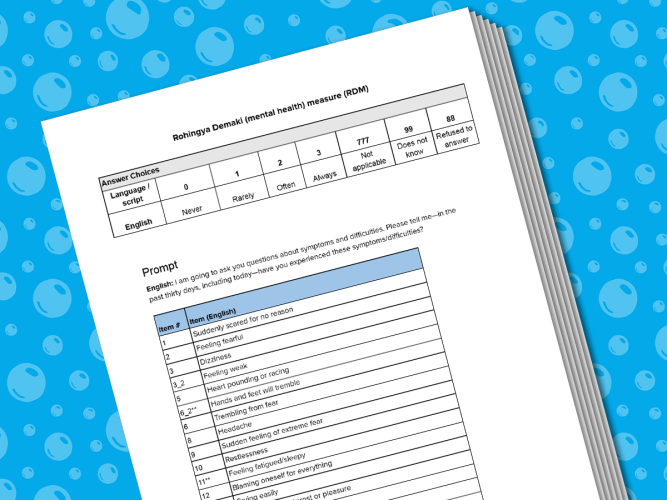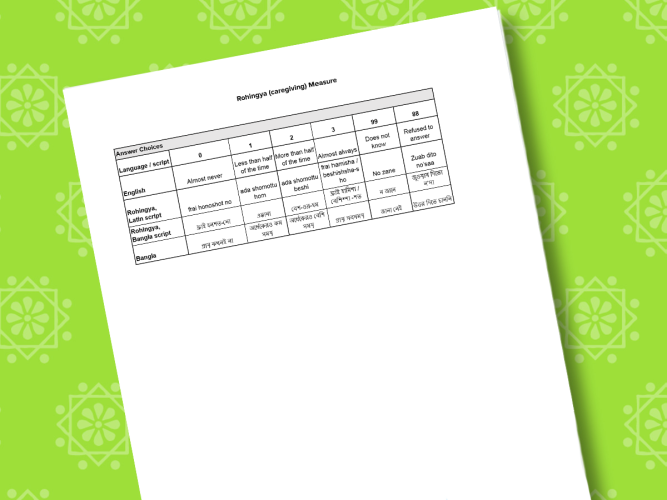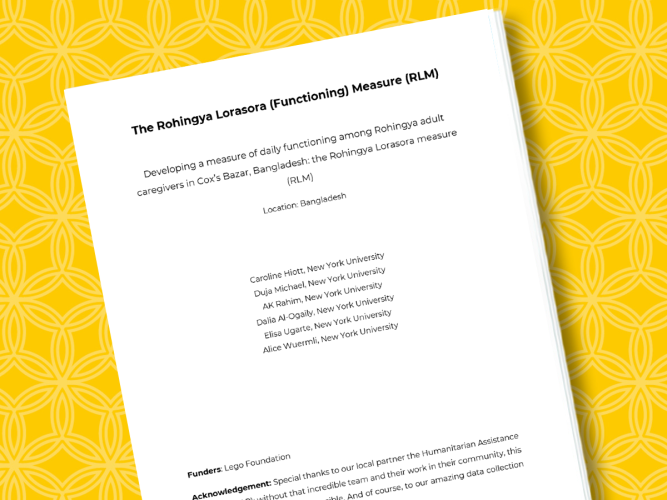Under the Play to Learn consortium, NYU Global TIES for Children (NYU-TIES) rigorously evaluated three play-based ECD programs that offer innovative and scalable content and service delivery models based on pilots serving young children and families across some of the largest crises of displacement in the world: Myanmar, Venezuela, and Syria.
The Benefits of a Program Designed by and for Fathers in Cox’s Bazar, Bangladesh
NYU-TIES tested the benefits and costs of adding a program uniquely designed for and by fathers to existing programming offered to mothers of children 0-3 years old as part of a program uniquely designed by and for fathers.
The program had positive effects on family dynamics known to improve child outcomes. These include fathers’ engagement with their wives; parenting practices by fathers, including reduction in harsh discipline; and fathers’ beliefs about fathering, family engagement, and the importance of play. Mothers and fathers shared that this program helped fathers with anger management and violent behavior at home.
Key takeaways for practice include:
- Engaging fathers delivers benefits to children, as well as families. ECD programs often exclusively target women; this research demonstrates the unique and powerful benefits that engaging men can have on the whole family.
- Caregiver programs need to be tailored. The roles that caregivers have within and outside their families affect their schedules, their experiences, and their needs. Prior research illustrates fathers are unlikely to participate in a program for mothers. Tailored programs support attendance and participation, which is essential to delivering results.
- This program had larger impacts on families facing greater adversity. Fathers facing more health concerns, financial worries, or employment stresses also saw additional improvements in their depression and anxiety symptoms.
In Colombia, NYU-TIES tested the benefits and costs of delivering 10 minutes of Watch, Play, Learn: Early Learning Videos on WhatsApp to Colombian and Venezuelan families with 4-year-old children twice a week for 19 weeks. The videos use play and an animated cast of characters to teach math and social and emotional skills. The results of the impact evaluation indicate that watching Watch, Play, Learn videos supports the development of children’s foundational emotional skills. Children’s abilities to identify emotions with precise vocabulary and recognize what others are likely feeling increased. The research also indicated a promising trend that watching the videos could support math skills of children who were not attending preschool.
Key takeaways for practice include:
- Mass media can be a flexible, scalable tool to meet the needs of young children on the move. Our research highlights the feasibility of using a distribution platform that is readily implementable at scale for reaching young children and their families, particularly families on the move and/or who do not have access to early childhood education programming.
- Quality mass media can support children’s emotional development.
In Lebanon, NYU-TIES tested the benefits and costs of the Remote Early Learning Program (RELP), an 11-week remote preschool program, alone and in combination with a parenting support program. The program served mainly Syrian caregivers, who followed a comprehensive curriculum that integrated Ahlan Simsim videos and print content with their five and six year old children at home. The research indicates that the remote preschool program had significant positive impacts on emergent literacy and numeracy, overall child development, child play, social emotional skills, and motor skills. Improvements in literacy and numeracy from the remote preschool program were comparable to those seen from a year of in-person preschool.
Key takeaways for practice include:
- Remote ECD programs can be developmentally appropriate and feasible for children on the move. This is an important finding for populations affected by conflict or climate crises, during health emergencies, for families on the move, or in other contexts where in-person preschool is not feasible in the short- or long-term.
- Caregivers of all backgrounds can help deliver early learning to their children. Contrary to common assumptions, caregivers with limited literacy and education were just as able to successfully deliver the curriculum and use instructional tools as other caregivers.
NYU and partners developed three novel instruments to better capture key outcomes for Rohingya
